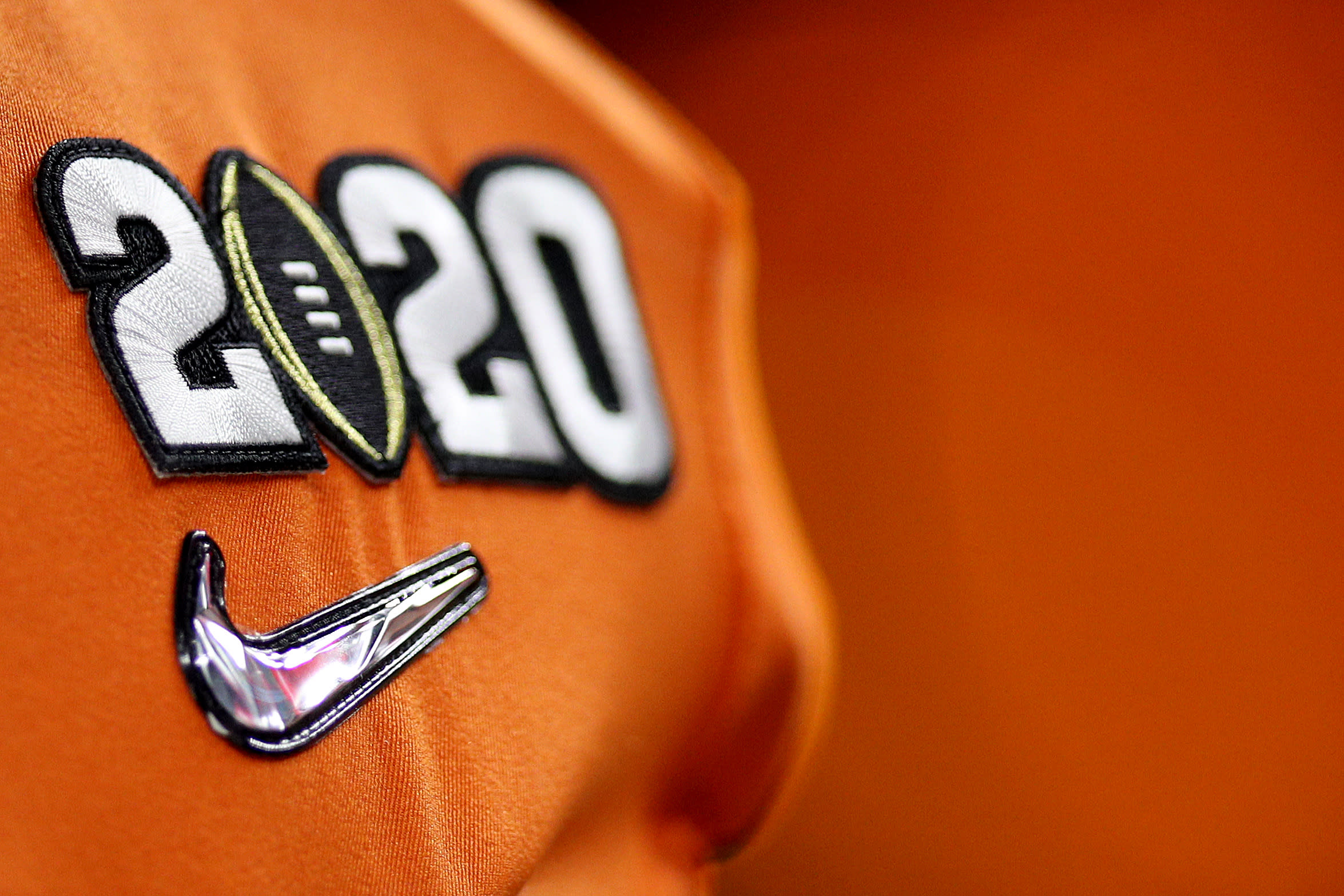
There is a growing appetite in the college sports world for positive news. The training camp shutdowns at Michigan State and Rutgers, combined with the gloomy glimpse of an un-bubbled future provided by MLB, have cast a pall over college football’s immediate future.
In the next week, some direction is expected from the Big 12 and SEC that should chart the short-term course for college football (the ACC announced its own plans Wednesday). For now, the only strategy unifying college sports is waiting and hoping.
So as we squint to see a path forward in college football, the most realistic source of optimism comes from a simple place – testing. Talk to any college administrator, and they’ll say the most realistic path to college football being played at some point in the upcoming school year – either the fall or the spring – comes from the availability of rapid, accurate and cost-effective testing that can be administered frequently throughout the sport.
“I think that the key to football season is going to be our ability to test and test regularly,” West Virginia president Gordon Gee told Yahoo Sports in a phone interview. “And also to make certain that we have the most advanced testing possible.”
Can testing save the 2020-21 college football season? That’s uncertain, but it remains the hope that athletic directors, presidents and medical experts are clinging to as the bad news piles up around the sporting landscape and the unknown variable of students returning to campus still looms as a seismic disruption.
The rapid testing answers currently available simply aren’t good enough. Greg Stewart, the director of sports medicine at Tulane, says the antigen test available now is only 60 to 70 percent accurate.
“There’s not going to be one [available] for the fall,” said Stewart, the chairman of the medical advisory group for the American Athletic Conference. “There’s some stuff out there that they’re working on. Nothing that’s reliable that’s quick enough.”
The testing issues for college athletics have been underscored by the spiral of the Miami Marlins this week. Players are being tested every other day in MLB, and that didn’t prove enough to stop a breakout with a fallout that’s rippling through the sport. Colleges have NCAA-recommended weekly testing, including tests that are taking days to return.
Here’s the scenario that offers athletic directors and coaches hope: Daily tests upon the arrival of every player, staff member and support staff entering the football facility. While it’s not failsafe, it’d be a drastic improvement and could theoretically alter some of the prohibitive quarantine protocols that are handcuffing the sport.
Unfortunately, the technology isn’t there yet. “The issue comes in the lack of accuracy,” Stewart said in a phone interview. “If you had false positives, you could live with it. It’s the false negatives.”
Florida athletic director Scott Stricklin has been encouraged so far by what he’s seen from the Premier League and the early phases of the NBA bubble. He’s still hopeful that college football could join them in playing amid a pandemic.
“Testing and getting our arms around the tracing protocols are the two things that have to be figured out if we’re going to play this fall,” Stricklin said. “There’s been some encouraging signs if we can get the right testing system.”
There are bursts of optimism amid all the dark headlines. Take Tulane, for example, which has administered more than 2,300 COVID tests since athletes returned there on June 15. Upon initial return, 1.7 percent tested positive. That number has dipped significantly since, as Tulane has tested twice a week and only had three positives among athletes and staff.
That testing commitment is double the NCAA’s guidelines and more than most of the schools in the Power Five. It’s especially impressive because Tulane, which is in the American Athletic Conference, lacks the finances of Power Five schools, yet has already paid nearly $170,000 to test its athletes and staff.
“Testing obviously doesn’t prevent the virus from getting inside of your bubble,” Tulane athletic director Troy Dannen said. “It’s going to identify when the virus gets inside the bubble and give you the ability to contain it the best you can.”
When conferences decided to allow athletes back on campus in June, they did so without any expectation that the virus would rip through the country as significantly as it has the past month. They also held a belief that testing technology would be further along.
One article that made the rounds in the college presidents’ circles in recent weeks was from the Washington Post. It declared: “Rapid, low-cost saliva tests are coming.”
The New York Times reported that three companies and some research laboratories “are in the late stages of” easy-to-use COVID-19 tests that could be administered daily. (They’d cost less than $5 per day, which would transform society, helping students go to class and Americans return to work.)
According to one college president, rapid saliva tests could be an answer once they become more reliable.
“Until they are more accurate and reliable and everyone takes them on the day of the game, there’s a much better chance of that happening [for this season] than a vaccine. I’m confident [rapid testing] is going to happen. I just don’t know when.”
More from Yahoo Sports:
"football" - Google News
July 30, 2020 at 04:58AM
https://ift.tt/30fNVxf
What's college football's best path to playing this season? - Yahoo Sports
"football" - Google News
https://ift.tt/2ST7s35
Shoes Man Tutorial
Pos News Update
Meme Update
Korean Entertainment News
Japan News Update
Bagikan Berita Ini














0 Response to "What's college football's best path to playing this season? - Yahoo Sports"
Posting Komentar